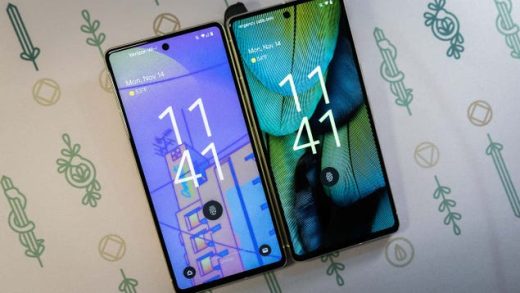Is Salman Rushdie an artist or a symbol? Can he be one but not the other? Or perhaps it’s an all-or-nothing affair and he is both or else neither. Ever since Rushdie, the author of 13 novels, was violently attacked onstage in August 2022 at a literary event, one line of thinking has it that his books should perforce be celebrated. The New Yorker embodied this view when it made the case, with very little discussion of Rushdie’s work, to award him the Nobel Prize in Literature. It was not an unpersuasive editorial, but in it, what Rushdie’s work represented outweighed what it contained. Yet if that’s the “both” case, the “neither” perspective feels even less satisfactory. Six days after the attempted murder, the American Conservative poured disdain on Rushdie as a free-speech icon and as a novelist, suggesting that anyone who mocks religion deserves a punch at the least and crassly asserting, “the fact that someone tried to kill an author doesn’t make that author’s books any good.”
Rushdie has lived under a death sentence since the Ayatollah Khomenei issued a fatwa in 1989 upon finding the novel The Satanic Verses blasphemous. (He did not read it.) After gradually emerging from a decade spent in hiding, Rushdie found a successful marriage and a normal life. He became a champion of writers whose work was targeted by fanatics, oppressive regimes, and thought police generally. Then Rushdie was nearly killed in 2022, when his assailant—Hadi Matar, a 24-year-old man from New Jersey now awaiting trial for attempted murder—stabbed him repeatedly in the face, hand, torso, and neck. The jacket photo for Knife, Rushdie’s memoir of that horrifying experience and its aftermath, shows the author with one blacked-out eyeglass lens; the attack permanently blinded him in his right eye. Before 2022, Salman Rushdie was a symbolic name. Now he is a symbol in his very person.
 Knife is better than Rushdie’s 2012 memoir Joseph Anton, which described the post-fatwa years. That book was too long, rather self-pitying, and filled with ungentlemanly reflections on more than one of Sir Salman’s ex-wives. Knife is leaner, rawer, and full of purpose. (It is also notably generous toward his wife Eliza Griffiths.) While imperfect and occasionally frustrating, the book powerfully narrates an experience that no artist should have to endure while also grappling with fundamental questions: What are the limits of free expression? What is the purpose of art? How should a writer respond to an act of brutality?
Knife is better than Rushdie’s 2012 memoir Joseph Anton, which described the post-fatwa years. That book was too long, rather self-pitying, and filled with ungentlemanly reflections on more than one of Sir Salman’s ex-wives. Knife is leaner, rawer, and full of purpose. (It is also notably generous toward his wife Eliza Griffiths.) While imperfect and occasionally frustrating, the book powerfully narrates an experience that no artist should have to endure while also grappling with fundamental questions: What are the limits of free expression? What is the purpose of art? How should a writer respond to an act of brutality?
 Rushdie has chosen to respond with words. He will not be silenced. Just as the attacker’s knife symbolized violence, Rushdie has made language into a weapon of his own: “If I had unexpectedly been caught in an unwanted knife fight, maybe this was the knife I could use to fight back.” He spends the first portion of the book recounting, with excruciating precision but also humor, the experience of being stabbed, nearly dying, and spending a year in the juggernaut of intensive medical recovery. “You’re lucky that the man who attacked you had no idea how to kill a man with a knife,” he is wryly told by one doctor. For several days there was real question whether Rushdie would survive. A particular ordeal, he writes, was to be traumatically blinded—a lifelong fear of his, and something he had written into a scene of his novel Victory City.
Rushdie has chosen to respond with words. He will not be silenced. Just as the attacker’s knife symbolized violence, Rushdie has made language into a weapon of his own: “If I had unexpectedly been caught in an unwanted knife fight, maybe this was the knife I could use to fight back.” He spends the first portion of the book recounting, with excruciating precision but also humor, the experience of being stabbed, nearly dying, and spending a year in the juggernaut of intensive medical recovery. “You’re lucky that the man who attacked you had no idea how to kill a man with a knife,” he is wryly told by one doctor. For several days there was real question whether Rushdie would survive. A particular ordeal, he writes, was to be traumatically blinded—a lifelong fear of his, and something he had written into a scene of his novel Victory City.
For weeks after the attack, Griffiths would not let Rushdie look into a mirror. His wounds were so disfiguring that she thought he would be crushed by what he saw. When he finally summoned the strength to look, the experience produced the most remarkable passage in the book:
A man sees his reflection and isn’t sure he recognizes himself. Who are you, he asks the figure in the mirror. Do I even know you?…The lips of the man in the mirror do not move. There is a slash across the top of his forehead. There is a cut in the left-hand corner of his mouth. He is heavily, messily unshaven. His right eyelid is stitched shut…His one eye looks sad. His face looks shocked. He is playing his part well.
In addition to recounting his survival and recovery, Rushdie reckons with his attacker, whom he calls “the A.” He does not wish to name the man in his pages. Fair play. He had wanted to visit the A. and speak with him, but his family convinced him not to do so. Instead, Rushdie composes a chapter of imagined conversations with a sort of middling fanatic, a failed assassin undeveloped in his Islamist beliefs yet righteous in his banal certainty. This portrait is drawn from known facts about the attacker. The sharp wordsmithing and dialogue are a potent reminder of Rushdie’s writerly powers. (Question: “What’s the difference between a virgin and an incel?” Answer: “Fuck off.”) Rushdie gives himself the last word, yet the scene is not triumphant; it leaves the reader baffled at the attacker’s vague motivations and futile goals. Why would anyone try to kill a novelist? it seems to ask.
The book also confronts larger questions, not always successfully. The first lesson of free expression, Rushdie writes, is “that you must take it for granted. If you are afraid of the consequences of what you say, then you are not free.” Surely this is not quite right. If words lacked consequences they would be meaningless; words in fact are full of power. The essence of free expression is that someone can come along and prove you wrong, which is a consequence of false or unpersuasive speech. What Rushdie must mean—but falls short of saying—is that if you are afraid your words will be met with violence, you are not free. Knife more effectively grapples with the nature of creativity. “[A]rt challenges orthodoxy,” Rushdie writes. “To reject or vilify art because it does that is to fail to understand its nature. Art sets the artist’s passionate personal vision against the received ideas of its time,” including ideas about religion. He continues: “Without art, our ability to think, to see freshly, and to renew our world would wither and die.” Hear, hear.
I leave it to better critics to judge Salman Rushdie’s novels, but I will say this about his symbolic importance. With this memoir he now represents a book closing over a blade, as though making it into a bookmark; the blade is enveloped by a sheath of words and its sharp edge is neutralized. Sustaining creative inspiration over time through the application of discipline is hard enough—like running a marathon while holding a lit candle. If the race should be run with the flame intact a kind of miracle has occurred. All of society stands to benefit from this creative act. No one should have to attempt it with a gun pointed at their head, ready to be fired if the prose offends. Or, for that matter, a knife to their throat.
The post Sharp Bookmark: On Salman Rushdie’s ‘Knife’ appeared first on The Millions.










